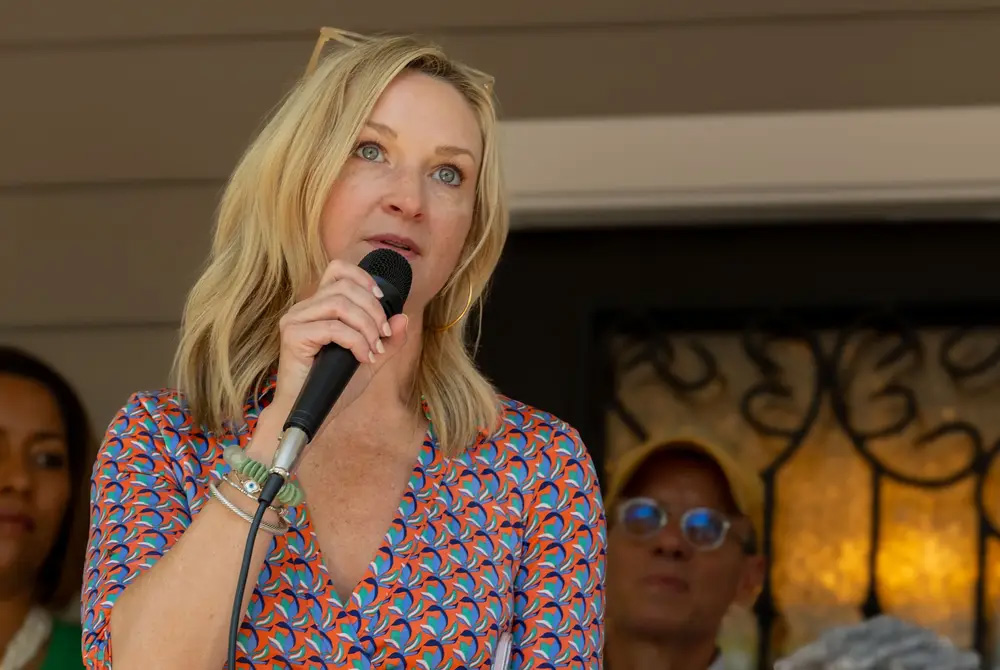From The Texas Tribune:
Figure out what to wear to be taken seriously; prepare a few one-liners to respond to the inevitable critiques about your age; know the issues facing your district.
These are among the tips Rep. Erin Zwiener, a Driftwood Democrat, serves up to young people seeking elected office in Texas.
Zwiener was the second youngest elected state lawmaker in Texas when she won a state House seat at 33. On the campaign trail, competitors and potential voters frequently chided Zwiener about her age, questioning whether she had the skills and experience needed for the job. Zwiener had a standard comeback: Lyndon B. Johnson, the future president, was 28 when he was elected to U.S. Congress, and Lloyd Doggett, now in his 29th year in Congress, was 27 when elected to the state Senate.
“Some of those lines really helped remind folks that my age wasn’t that unusual,” she said.
In the Texas Capitol, Zwiener was — and, at 39, continues to be — something of a rarity. Despite having one of the youngest populations in the country, the Texas Legislature is a gerontocracy, and it has only gotten older in recent years.
In 1981, the average age of lawmakers was 42, according to data from the Texas Legislative Library. Last year, it was 55. The average age of Texas’ 30 million residents is 37, based on U.S. Census Bureau data.
As a result, Zwiener said, issues most affecting young people, including education and access to affordable childcare and housing, are neglected.
“The age gap between the Legislature and the people we represent definitely pops up in ways that create more challenges for our communities,” Zwiener said. “The fact that most lawmakers haven’t been young adults since the ‘80’s or earlier makes it challenging for us to help those folks.”
The demographic mismatch between Texans and the lawmakers who represent them is both a symptom and a cause of civic disengagement among younger Texans. A number of studies have shown that people are more likely to be civically engaged when they see themselves represented, whether in terms of candidates’ age, race or gender.
And because voting is habit-forming, those young people tend to remain disengaged and become less likely to run for office, according to research from the Center for Information and Research on Civic Learning and Engagement.
The cycle is reinforced through Texas’ barriers to voting and the challenges of running a campaign as a young adult. Texas has some of the strictest voting laws in the country, banning online voter registration and same-day registration — both have been found to increase voter turnout, especially among young people.
Meanwhile, running for office requires raising large sums of money, a roadblock for young candidates who don’t typically have wide networks of wealthy donors. And winning a seat in the House or Senate means traveling to Austin for about 140 days every other year for the legislative session, a commitment that makes it difficult to retain a full-time job.
For young professionals building a career and a family, those logistical hurdles can make running for office seem like a pipe dream. Not to mention the paltry pay of $600 a month.
“We don’t pay a living wage to our legislators, which sounds good because you don’t want to pay politicians, but the end result is you have trust-fund babies making policy for 30 million people in the state,” said state Rep. James Talarico, D-Austin, who became the youngest state lawmaker when he was elected in 2018. “It’s mostly wealthy bankers, doctors, lawyers that can afford to serve, and that’s not a representative democracy.”
Barriers to running for office
Working in a San Antonio public school district in the years following a slate of school budget cuts convinced Talarico that he wanted to run for office and affect education policy.
But as a 28-year-old former educator and non-profit leader who grew up in a middle class household, Talarico did not have the kind of money one needs to launch a political campaign. And he wasn’t sure where he would find it.
A millennial, Talarico naturally turned to social media. He put out a call to his online network of friends, and to his surprise, raised $25,000 within a week. Over the following weeks, Talarico would walk all of District 52 by foot, holding energetic town halls along the way.
“That’s how I won my swing seat in Williamson County, a seat that had voted for Donald Trump just two years before I ran,” Talarico said. “I went and knocked on everyone’s door.”



















